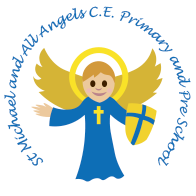Anti-Bullying and your child
Bullying
Bullying clearly affects our well-being and can happen to anyone, anywhere. If you or someone you know is being bullied, you are not alone. Although we participate in Anti-Bullying Week each year, it is imperative this work is continued and embedded throughout the year.
Bullying is defined as the repetitive, intentional harming of one person or group by another person or group, where the relationship involves an imbalance of power.
Bullying is, therefore:
- Deliberately hurtful
- Repeated, often over a period of time
- Difficult to defend against
Bullying can include:
- Emotional Being unfriendly, excluding, tormenting.
- Physical Hitting, kicking, pushing, taking another’s belongings, any use of violence.
- Racial Racial taunts, graffiti, gestures.
- Sexual Explicit sexual remarks, display of sexual material, sexual gestures, unwanted physical attention, comments about sexual reputation or performance, or inappropriate touching.
- Direct or indirect verbal Name-calling, sarcasm, spreading rumours, teasing.
Baiting and banter can also be classed as bullying.
If you are worried about a child please, please speak to a member of staff as soon as possible so we are able to help and support.
